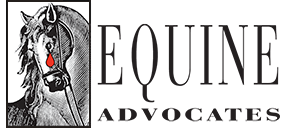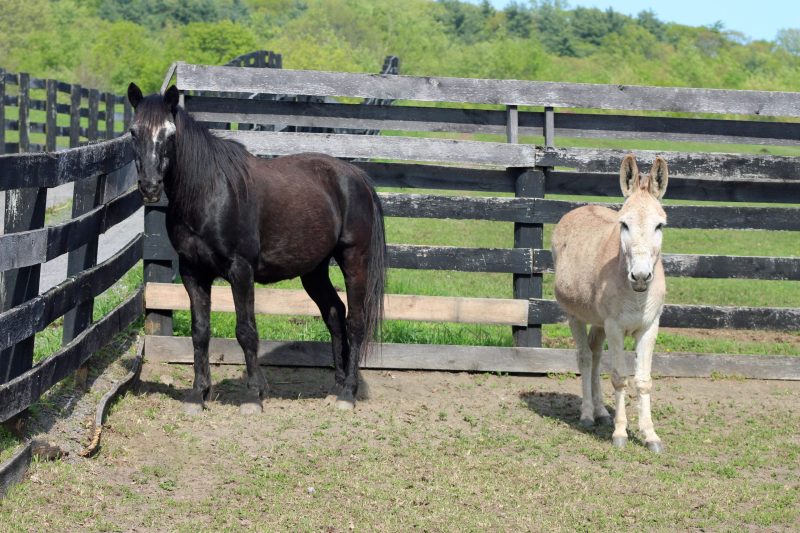When our organization adds a rescued equine to our family, it warms our hearts to know we saved one more animal from a tragic fate. It’s an even better feeling when we get to make sure a bonded pair isn’t broken. We welcomed “brothers” Blue, a Pony, and Jasper, a Standard Donkey, to our sanctuary in April.
Blue, whose estimated birthdate is April 21, 2004, had been used as a Camp Horse in Vermont. However, the camp owner decided to get rid of him because he was not a good candidate for being ridden “English.” Instead of trying to find him a safe and kind home, that callous owner dumped him at a slaughter auction in Agawam, Massachusetts.
The sad truth is that many Camp Horses and Ponies children fall in love with during the summer might not be alive the following year. This is often the case with seasonal riding camps that lease their horses from killer buyers and horse dealers and then return the horses at the end of the season. Also, for some camps, if they determine that any of those horses have outlived their usefulness, they will sell them at low-end auctions, where many end up being sold for slaughter. This “throw-away” mentality also applies to horses and ponies used at dude ranches, riding academies, riding schools, and other riding establishments where care is often substandard, and the animals are neglected and overworked. Many are mishandled, ridden without proper oversight, tethered in the hot sun all day without adequate water, and treated inhumanely. Parents need to do their research to make sure they send their children to reputable riding camps and other establishments that do not dispose of their animals at auction or place them in dangerous situations. At Equine Advocates, we focus on responsible horse guardianship as part of our Humane Education Program, which is so important in preventing horses and other equines from falling through the cracks.
Jasper, born around 2010, was rescued in 2017 from a livestock auction that once operated in Chatham. This auction, which closed in 2018, wasn’t known for selling equines, but did on occasion. At the time, no information was available about Jasper’s background or why he was dumped there. He was hard to catch, but otherwise sweet.
People without the patience or skill to deal with what they consider to be a difficult equine often become frustrated and dump their animals at low-end meat auctions. Donkeys are highly intelligent but, like all equines, will develop behavioral problems if abused or mishandled. Photos of Jasper at the time of his rescue document that he was badly neglected and in terrible shape. Donkeys who suffer this kind of abuse often develop lasting scars that require humane treatment and lots of TLC to rebuild trust.
Fortunately for Jasper and Blue, they were saved and became friends. When they needed a new home, we opened our gates to them, and they now live together in a field we named the “Blues Brothers.”
This story was published in Berkshire Animal World’s July 2025 issue.







